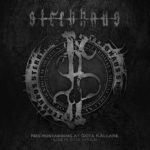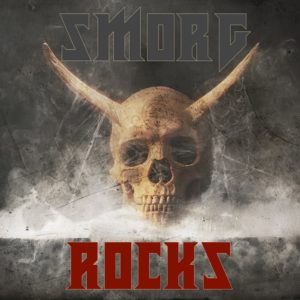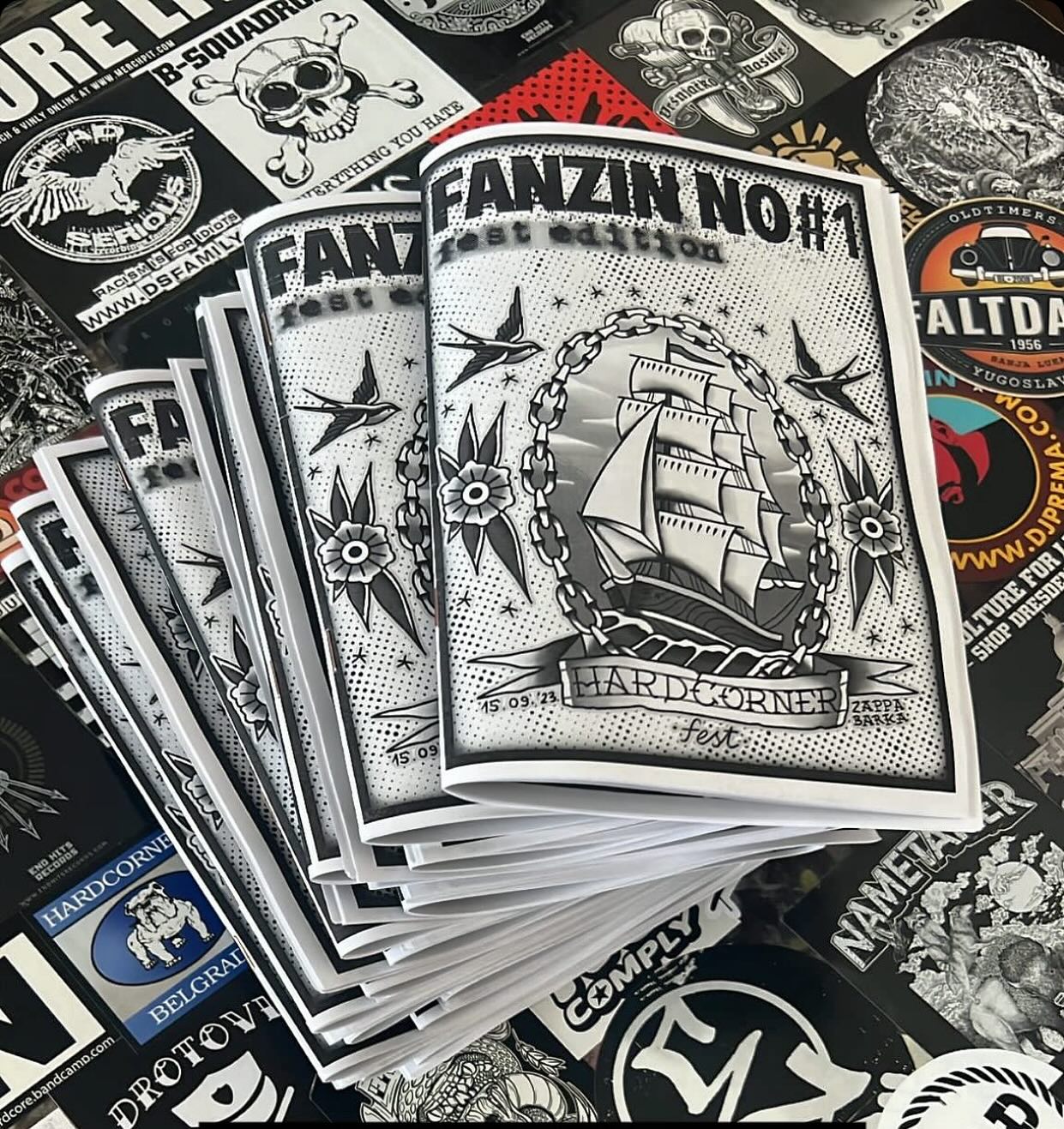They come from the cradle of Western Civilization, democracy, medicine, philosophy, literature, theater; land of magnificent temples, great food, great people… They are passionate souls, they create epic music, they enjoy life, they are Illusory!
Hi! Welcome to Abaddon Magazine! How are you?
Niki Danos (bass): We are doing fine, thank you! We do hope you are alright, too and we thank you so much for having us!
I would like to congratulate you on your new album, I think and I hope this will be your breakthrough album.
George Papantonis (guitars): Thank you very much! We were very pleased with these songs since pre-production. The production made the album sound even better to our ears! We also hope that this is our breakthrough album and we have a feeling that it will be.
Before we start talking about it, I think it is the best option to introduce our readers to the band’s history. You were formed back in 1992 as The Ivory Tower. As The Ivory Tower you released two demos, one EP and one album. And in 2012 you changed the name. Why?
Dee Theodorou (vocals): Well, the story is – more or less – known by now… We do have a long one indeed. Back in 1992, when I first came up with the name Ivory Tower, I never thought that my band was going to last for life! After all those years with this specific name, it was very hard for the band and especially for me to let go, but there was no other way. You see, back then I never thought of registering the name and that was just wrong. A couple of years after our formation, a German band released an album under the “Ivory Tower” name and that was it. We kind of “transformed” it for a few years to The Ivory Tower, but that was not enough. So when the right time came and with a label contract in our hands, we simply had to completely change our name, we simply had to move on. Illusory was an idea among other ideas for a new name. It almost has the same meaning as the Ivory Tower, with the same approach; it fits in our shoes and our music style.
“Crimson Wreath” is your third album. It is a bit different from “The Ivory Tower” and “Polysyllabic”. Can you draw the parallel between those albums?
Dee Theodorou: I think that there are a lot of similarities and a few differences between those albums. After all, we don’t want to entirely change our music style from one album to another. We love playing Heavy Metal, we adore all classic bands we grew up with and we never wanted to create a new sound, just to be different. In addition, we have some progressive and thrash influences that we always like to express through our compositions. Heavy Metal is our thing and we choose to stay close to our roots. Still, I’d say that “Crimson Wreath” is less complex but heavier than our previous albums.
“Crimson Wreath” is a roller coaster of melodies, lyrical themes, emotions… What inspired you to write and compose this, I will be free to say, masterpiece?
Costas Koulis (drums): First of all and above all, we would like to thank you for your kind words! We deeply appreciate your comments and we feel immensely honored. “Crimson Wreath” features a variety of themes, regarding lyrical and musical orientation. We are inspired by the life we lead, the books we read, the movies we watch, the news, the good and the bad of this planet. When we started brainstorming on the album that would follow “Polysyllabic”, we were constantly bringing ideas to the table. Then teamwork took over and we came up with the songs you are listening to. It’s all about team effort and a band that is creating without having only one or two main composers to contribute. Maybe that is one basic ingredient.
How did you deal with Covid? Did it affect the band anyway, since as I know you have your own studio?
George Papantonis: We lived through two general lockdowns in Greece during the last sixteen months. The tough part was that, even though we have our own studio, we couldn’t rehearse for a considerable period. This didn’t affect us, as we worked at home and we practiced a lot. At the moment almost everyone in the band is vaccinated, therefore it is easier to work in the studio.
This album brought some personal changes. You had to search for a keyboardist. Was that a hard job?
Greg Bakos (guitars): Truth is it was really hard to find the right person to handle the keyboards. It took us about a year and a half… Here in Greece, it’s difficult to find a keyboard player who’s not already occupied, who’s not playing in another band, so he can focus on our own songs. In Makis’ case, we were constantly on the lookout. And we found him by chance… Fortunately, we found a person who totally is a fantastic human being and then a fantastic player. He managed to become one of us in a very short period of time and he showed us, from day one, that he really wanted to be part of the Illusory family!
Recently you released a video for the song “Ashes to Dust”. The song has a narrative part, how was working with Grigoris Valtinos?
Costas Koulis: Mr. Grigoris Valtinos is a phenomenal actor and director. We have seen him in theater plays, in the movies, on TV… We are huge admirers of his overall work. When we got to contact him and found out he was interested in collaborating with us, we simply couldn’t believe it. He shook hands with us on Sunday and he was in the studio on Monday, to record his session! When he started narrating, we realized we were witnessing a unique performance. It was so perfect that we wanted to do just one take. He insisted on doing five more, in order to have enough material to work with, showing how professional he is, showing the brilliance of his character. We are thrilled and happy to have him on board, in terms of doing that part on “Ashes To Dust” as well as starring in the video. He did an absolutely amazing job and we are grateful to him for making this song and this video so special.
The narrative part is from ancient Greek language, how hard was it to incorporate it into a song?
Dee Theodorou: Basically it’s a part taken off Homer’s Iliad prototype epic. We had the idea of translating the text into English but that scenario collapsed as soon as we imagined the voice of Mr. Grigoris Valtinos over it! He made it very easy for us and as soon as he did his first takes in the studio, we felt that the script absolutely matched with our musical part.
When it comes to “harder” thematic, like violence, how difficult is it for you to incorporate all the anger about child molestation or racism for example, to be concise and profound?
Costas Koulis: We talk and sing about issues that trouble mankind nowadays. Racism is a topic we will never stop talking about. Always a delicate issue, proving that man’s thirst and weakness for power can lead them to the worst decisions ever. As a band we are totally against racism; we are totally against all trends which insult and impinge human rights. Child molestation and pedophilia are equally condemnable, and, on this album, we found a way to express against them, with songs the likes of “All Blood Red” and “Fortress Of Sadness” respectively. We incorporate how we feel and how we see such monstrosity; we are trying to make a statement via our music. Songs will not change that situation, unfortunately, but they can be a good start.
“S.T. Forsaken” is actually about the main character of The Ivory Tower debut album. Steven Towers saga continues?
George Papantonis: The Steven Towers saga continues with one song in every album. In our previous album, “Polysyllabic”, the song “Polysyllabic Thoughts” was the second chapter in Steven’s story, while “S.T. Forsaken” is the third chapter.
“Fortress of Sadness” talks about pedophilia. I have no idea how it is in Greece, but here in Serbia, newspapers are full of titles on that subject. Where has this world gone wrong?
Dee Theodorou: This a massive social scourge the world is dealing with. I just pray to God to let nothing so unbelievably cruel happen to my family or even to the family of someone I know. I had the entire scenario for this song in my head for so many years… A while back, I even recorded some kids playing by a pool, just to use it for the middle part of the song. Basically, this song consists of many different pieces of music written by the band, which I matched together and did the arrangement based on the plot I had in my head. At some point, we were discussing with my bandmates about the song finale and we decided to transform the song into a thriller of cinematic proportions. Worked on the epilogue by combining ideas and a series of respective thoughts and the outcome was truly fulfilling. We just wanted to show that such criminals should be punished and that at the end of the day, human lives do matter, especially when we are referring to children; the very tomorrow of our world.
“Ashes to Dust” is, as you said, an allegory, a heroic rhapsody. Was that the most demanding song to write?
Costas Koulis: Every song is demanding, in its own wonderful and even weird way. We have songs with choirs and orchestral parts, with lyrical themes and narrations, with multi-instrumental angles and tough spots and then we have songs that are totally immediate and straightforward. But they require equal attention. “Ashes To Dust” has become an allegory when we decided to make a video out of it. In fact, it’s what you said. A heroic rhapsody about the greatest warrior king in the Trojan War.
“Crimson Wrath” is an epic journey. Lyrics are based on anti-war thematic, racism, child molestation as well as Greek mythology. What was the most challenging part in the creative process?
Costas Koulis: With “Crimson Wreath” we are basically referring to two main thematic features. Anti-war and the suffering of human loss. “An Opus Of Loss And Sorrow”, comprising of the songs “Past Forever Last”, “The Isle Of Shadows” and “Agony’s Last”, is our interpretation of human loss and the way it affects our lives. During album making and the whole procedure, everything is challenging. I would have to say though that the most challenging part is to turn these lyrics and melodies into something that you would still like to listen to when it’s done and ready for publishing. Sometimes you have a song in your mind, you think it’s something that will make the difference and when you start recording and producing, you find out it’s not like you have pictured it. This is an utmost difficult task and I truly believe we have found our way to turn our inner thoughts into something we like and eventually you like as well.
During your career, you have been playing with Blue Oyster Cult, Warrel Dane, Geoff Tate… What have you learned from them?
George Papantonis: The professionalism of all those was what gave us lessons about how to be and act during shows. We have been performing for many years now, and we believe that, even though the band isn’t our main profession, we are as professional as we can be.
Can you reveal to our readers some interesting moments from those shows?
George Papantonis: One thing that comes to mind is the show with Blue Oyster Cult. When we had finished our set, I was leaving the stage and Donald “Buck Darma” was getting ready to hit the stage. He looked at me and said “Nice f*ckin’ gig, man”! I think that was enough for me!
We live in a chaotic time, rules and regulations due to Covid are changing every single minute. We have some scheduled shows and festivals, most are postponed or cancelled. What do you think when we will all get back to concerts and enjoy without thinking of vaccinations, masks and so on?
Makis Vandoros (keyboards): I think that every single person on the globe is really hungry to attend a live performance of their personal taste. As for the Metal scene, we already see big concerts being scheduled with enormous bands participating, promising to offer great times of enjoyment to their fans. I suppose the same thing is going to happen in our country as well. As for Illusory, we are ready to take part in every serious event we will be invited to play, as soon as it will be allowed by the authorities… It does not seem to be really far, by next autumn it is estimated to be safe enough for the people to gather again and enjoy REAL LIFE, not the virtual one.
Illusory contributed a tribute to Black Sabbath. Besides Black Sabbath, which bands influenced you the most?
Greg Bakos: First of all, it was a huge honor for us to be a part of that compilation by Metal Hammer Greece and cover a song originally written and performed by this majestic band! We chose “The Mob Rules” and I think it was the best choice we could ever make! We worked hard, tried to create a version of our own and that was the outcome. We have many influences as a band. Iron Maiden, Metallica, Savatage, Pantera, etc. In general, we move inside classic Heavy Metal, with some Thrash-Power-Progressive elements in our songs.
You released two videos, “Besetting Sins” and “Ashes to Dust“. Do you plan any more?
Makis Vandoros: For us, it is only natural to release more videos of our songs. We really need to show our audience the nature of our songs, the philosophy of our lyrics, by visualizing them through the technology of lyric videos or even video clips, making them realize who we really are and what our potentials as a band are…
How will you promote the albums since it is obvious there will be no tours?
Niki Danos (bass): The Internet has shown its real power during the lockdown period! It helped us demonstrating our work and maintain contact with potential audiences. The messages we have been getting are positive and we just wait to take our place on stage!
I have to get back to the videos. “Dreamshade” from the album “Polysyllabic” also featured, let’s say, a special guest star, Dimitris Alexandris. The video itself included a huge crew who worked on it, so I want to ask, how expensive and even profitable is investing money in such projects?
Costas Koulis: Oh, Dimitris is a dear friend. He’s a huge star, a terrific actor, most probably the best of his generation and we were so excited to have him on “Dreamshade”. And it is true that our director, Maria Chatzigianni and her team created a wonderful video back then, with a bunch of people participating. Money wise, I would like to state the obvious. Music is an expensive sport. For everyone. Even for the grand bands that we all admire. The big difference is that these bands can afford it, because they used to have huge sales and numerous live concerts revenue, to back it up. Every band in our level, in our perspective, is giving money to express their music, without expecting to get anything back. It’s as simple as that. In order to make it in the music business, one must be prepared for constant live availability and ready to leave everything behind. We are not twenty years old anymore, we all have jobs and families, we can’t operate like that. What we can do, is making the best albums we set our minds to and work hard. We will keep on giving money to music because through music we can introduce our band to the world, we can introduce our songs to a grand audience and hopefully make more people appreciate the essence of music itself.
Tell me your favorite, most demanding and the most personal song on this album?
Niki Danos: To be honest with you, I consider all those songs remarkable and I cannot easily give the spotlight to one of those. But should I need to distinguish one, then this one would have to do with Dee’s performance. We have had songs in our previous album, where Dee was amazing. One such song on this album is “S.T. Forsaken”.
What keeps you together all these years?
Dee Theodorou: Well, I would have to say, real friendship and pure love for what we do. Right from the start, when I first formed the band, I always had my mindset on finding not only good musicians but mainly excellent characters and nice people to hung around, be friends with and share our passion for creating music without putting ourselves or egos first. It seems that through the years we managed to be that kind of a band. A musical family!
I have been travelling often to Thessaloniki, as I saw there are a lot of metal clubs, shops, and bands. How is the situation in Athens?
Makis Vandoros: In Athens, we have several clubs dedicated to the Metal genre. Unfortunately, during this pandemic period, some of them could not bear the expenses of waiting for Covid to go away and are now closed for an unknown period. We all hope, and really believe, that they will be back in usual business as soon as the government will start thinking to allow the venues to host all kinds of spectacles. Talking of approx. 700 to 1500 spectators in every big show and 100 to 200 in local establishments, we easily understand that people support music in general and they really enjoy attending a good performance.
Of course, the most recognizable Greek metal names are Rotting Christ or Gus G. (Firewind), Septicflesh. Are there any young bands that, under your opinion, cloud overtake the throne?
George Papantonis: Those bands that you are referring to, along with the Thrash metallers Suicidal Angels, are full-time professional bands in the Greek Heavy Metal scene. There are a lot of great bands that release very good music. A lot of new bands release good albums, but you can never say who’s going to be the next to do that breakthrough. The future will reveal it!
It is obvious you are not playing for money and fame, but if you could start all over again, would you choose the same path or would you like to change something?
Dee Theodorou: Even though we are more than happy with what we have achieved, I must say that in the back of my mind there is a thought that maybe if we had some different turns of events and decisions in our early years, we could have been one step further than the one we are today. Some people and situations slowed us down; maybe I should have been more determined and focused.
Thank you so much for your time! I wish you all the best. Take care!
Greg Bakos: We thank you for the great questions and we look forward to meeting you, most preferably during a live concert of ours, when we will be able to return to normality. All the best!
Shine On The Ivories!






